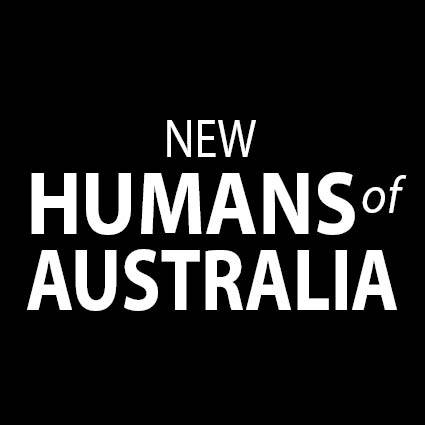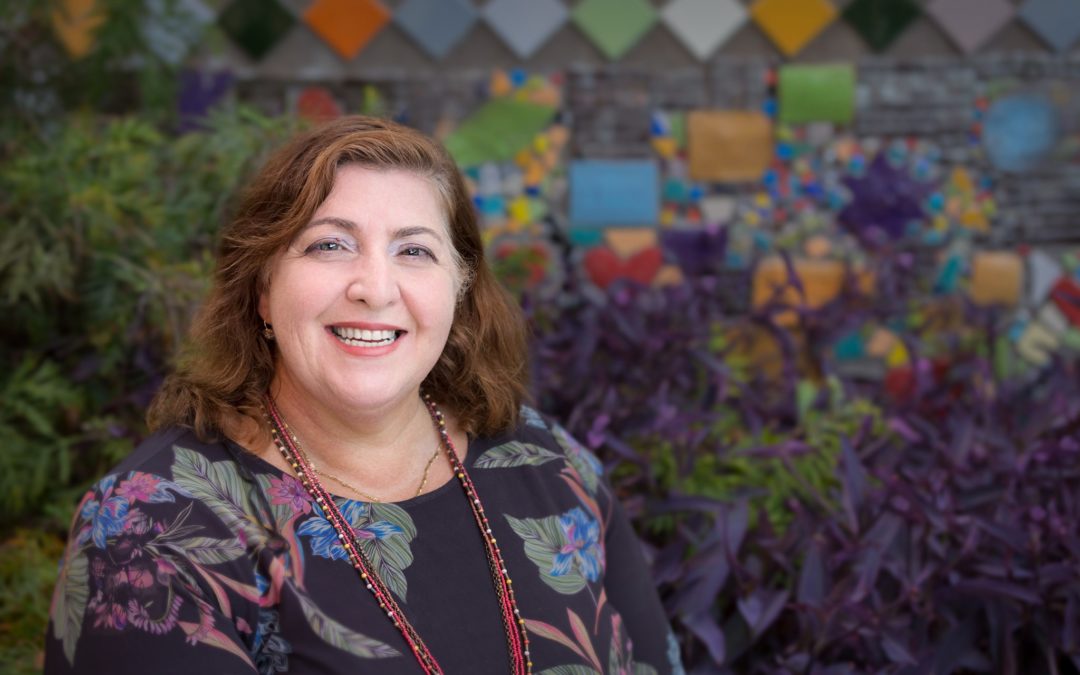My mum was the first person to buy an airplane ticket out of her village in Sicily. She came to Brisbane to visit family and never went back – she said that she smelt freedom here. At the time, she was engaged to my father, and apparently she said to him, ‘If you want me, you come here, because I’m not coming back!’
My parents worked hard all their lives. My father found a job in a factory a week after he arrived in Australia and stayed there until he retired. My mother ran her own business working as a very expensive dressmaker making high end clothes. She did very well for herself.
As a result, my sister and I were looked after by extended family. We grew up in a grand 8 bedroom Queenslander with my grandparents and my aunty and uncle. The house was also divided into flats, so there were always tenants to hang around with, one of whom became our Scottish 'nanna'! We had an amazing childhood where we had lots of people around who loved us. And we grew up completely bilingually, which I feel very grateful for.
But as I grew older, there were some parts which weren’t easy. I had my father, my uncle and my grandfather all in the same house, so there were a lot of restrictions. For example, even though I went to a Catholic girls school, I still couldn’t go on a school camp. And I could never stay over at a friend’s house. They used to say, ‘She will never spend a night in a bed in someone else’s house unless she’s married.”
They also certainly didn’t understand what it meant to have a child who was academic. In my final year, one of the nuns said to me, ‘Aren’t you applying for university? You should be!” They were appalled that no-one had encouraged me. In the end, I filled in the application and didn’t tell my parents.
When I was accepted to do a BA at the University of Queensland, all hell broke loose. At that time, UQ was the centre of student politics, and all they could think of was sex, drugs and rock and roll. I remember Dad saying, “No daughter of mine is going to that place!”, then my grandfather chiming in, “No granddaughter of mine is going to that place” and it went on and on for hours as a massive screaming match. In the end, I just said to them, “I’m going to do whatever I want regardless of what you think!” And I did.
Later, my mother came up to me and said, ‘Good on you’. Her father had actually done the same to her. She had won a scholarship to become a teacher but he hadn’t allowed her to go to the training college, and she had always regretted it.
After uni, I was offered a permanent role teaching migrants English, and that’s been my career for 37 years. I am also the president of the QLD TESOL Association.
I didn’t set out to be an EAL teacher, but once I started I realised it was exactly what I wanted to do. I always had that empathy, growing up, knowing that people have to work that little bit harder to be successful when English isn’t their first language. Even with my mother who could communicate very well, I could see people in the shops being very difficult and rather stubborn and just not trying to understand her.
To me, language is power. If you’ve got language, you’ve got an 'in' into society, and if you don’t, you are totally disempowered.
Now, teaching is my passion.
Gae
Born in Australia
Parents born in Italy
Arrived 1959 & 1960
Photographer: Pia Jessen www.piajessen.com
Become a NHOA supporter and get yourself a free book! www.patreon.com/newhumansofaustralia
#migrants #migration #italy #australia #storiesnotstereotypes



I have just been back to visit my grandfathers village in Sicily and I can understand why he emigrated to Australia.
Deborah Ann Granata
Thanks for sharing your story. I work with EAL/D students and know the difficulties they face.
So glad you found your passion and pursued it.
What a great Australian story of determination, compassion and triumph, you should make it into a movie!
Great story, Gae, wish you’d write a book… so many interesting threads in your life! PS. Lovely photo!
Your story is amazing.
The fruit fell close to the tree. You and your Mum are both strong, independent women. Your students were lucky indeed to have your support, encouragement and to benefit from your expertise. Great story – thank you.
Love your story, we need to hear more of these. Australia is the nation it is now b e cause of opeopke like you
Yay Gae! You are an inspirational teacher for others in the profession!
Sometimes you need to defy traditional expectations to find your own fulfilment and show what is possible with determination and strength
Thank you for sharing. Love stories like this.
Fabulous story!
Beautiful! My dad came here with family in the early 60’s from Calabria too! ????
Totally agree language IS power, as is literacy. Well done defying family biases, it’s allowed you to blossom.
We are fortunate to have you, dear lady. Your strength and passion are admirable, and also your courage in defying family traditions and expectations. I love your story ❤
???? Thankyou for sharing your story. Ever thought about writing a book? I would read it ????
Awesome, you are an amazing teacher and wonderful woman! Great power in your story!!
I so love your Mum. She had gumption!
So many echoes of my own family history here. ????
Great story! James Fde check it out
I can relate to some of your story. Came over in 1951 at 4 years of age. I think we could all write interesting stories of our lives. Well done on your achievements.
Language is power. I agree. One of my biggest regrets is that my kids are only marginally bilingual. ????
Love this second generation story!
I’m amazed how people don’t think being bi lingual is amazing!! I would love to be able to speak another language.
Love this story Can relate to everything you wrote I was born in Italy and came to Australia in 1961 and yes we were not allowed to go out or further education etc but I vowed I would not do that to my children and allowed them to follow their dreams.
I love this ???? so beautiful and inspirational. Who better to teach our EALD students then one who has been through similar experiences and came out the other end shining ????
Wonderfully expressed Gae.
Screaming matches are part of the Sicilian way! It’s what we do ????
Very well said Gae
I hadn’t even looked at your picture or finished reading and I new this was you ????
Beautiful story ❤
Lovely story. Thanks for sharing. We all have stories❤
Love to you and your family! So glad you managed to forge your own path! ❤️????
Great story maybe us lady should get together and listening to each other story as there is a lot of simelarity
great story. I love it. xo Lucky students to have you. Teaching is so powerful
What a wonderful woman. I applied to train a nurse 2 years after migrating to Australia from the UK with my parents and siblings. My father refused to allow me to go I initially, as he had the same attitude. After insisting I go to evening school twice a week to learn shorthand and typing for for 18 months after I left school, he finally realised I was not going to give in, he finally very reluctantly agreed to let me train at the RCH in Melbourne, i dont think i would have been allowed to train at any other hospital. Even coming from the UK I had similar very strict restrictions with seeing friends, as girls from other countries. I was lucky that i spoke English.
What a wonderful story of your life, thanks for being so honest. Well done for you persistence and acheivements. Thats what it was like in those days.
Awesome Gae!!!! Wonderful story and woman. Very proud to have worked with you!!!!
Rachel Gilberd this is very Looking for Alibrandi!
I can relate to this. Good on you for doing what you wanted to do
Good on you..your story os a common one. ????????
Gae what a great life you have had. I had no idea until I saw your name at the end of the story it was about you. Someone I worked alongside of who has had such insight into many different cultures.
Loved reading about you.
Please can you write more.
Wonderful story Gae, so inspirational for your students. ❤️
Carmel Ruggeri you may enjoy reading this
Love it! Language IS power! I live in France and see so many people who come here and don’t attempt to learn the language–so sad!
Great story Gae Nastasi, and what a fabulous contribution you’ve made to EAL at all levels in Australia.
Lovely story, please keep sharing it. You have helped women, girls, & your students, by helping yourself. A real Pioneer.
❤❤❤ So grateful to know you, Gae.